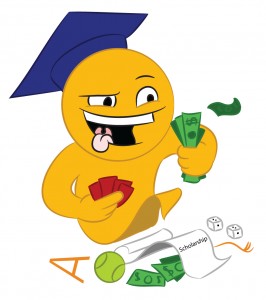Gambling on March Madness: Is it Worth the Risk?

Wagering on college sports is not a new concept, but there has been an exponential growth in the number of sports-betting cases being seen by the NCAA. Student athletes see betting on sports an opportunity to earn some extra money, especially if they are struggling with finances and paying for school. However, making sports wagers is against the NCAA rules and against the law.
You Can Get Suspended
In a recent event at Auburn University, Varez Ward, one of the men’s basketball team members, has become the subject of a point-shaving probe. A Tiger teammate of Ward brought his concern to Head Coach Tony Barbee, who then alerted authorities and the NCAA. Ward has been suspended from the team indefinitely and has basically ruined his chances to play as a college or professional athlete.
March Madness, the NCAA’s collegiate men’s basketball tournament, is one of the largest sports-betting events, following the Super Bowl and college football. It is estimated that a couple of billion dollars is wagered illegally on March Madness every year, many of which are through office pools and Internet gambling.
The NCAA considers a sports wager as “putting something at risk—such as an entry fee or a wager—in return for the opportunity to win something.” Making a bet may seem like a harmless amusement, but student athletes risk their eligibility when they engage in sports betting in addition to breaking the law.
NCAA Rules on Sports Betting
The NCAA has two basic rules on sports betting: (1) you may not place a bet of any sort on a college or professional sports event where the NCAA conducts a championship and (2) you may not give information to anyone who places bets on college or professional sports. The possible consequences for any of these actions include removal from the team, expulsion from the school, financial ruin, ban from professional sports, career instability, and possible jail time. Varez Ward will be learning this lesson for years to come.
NCAA March Madness Broadcast Rights.
The NCAA is against all forms of sports betting, both legal and illegal. It has established rules that ban employees of athletic departments, the NCAA national office, and student athletes from gambling on sports events, including intercollegiate, amateur, and professional sports. The NCAA stands on the belief that sports should be seen as activities to watch or participate in, not to be used to win money.
The aim of the ban on sports betting is to protect student athletes and to promote their safety as they participate in their sport. The integrity of the game ends up at stake when people who wager large amounts of money on a game try to influence the outcome in their favor. Basketball players may be approached by people with offers of large amounts of money if they help affect the results in a particular game. Many players see this as an opportunity for a quick payout, but many times, they are manipulated into affecting more and more games with the threat of being snitched on to the coach or the NCAA.
In an attempt to protect these players, the NCAA enforces these rules to ensure student athletes understand the dangers and consequences on wagering in sports. The NCAA developed the website Don’tBetOnIt.org to help educate the students and the public on the dangers of sports wagering. This website offers information and tips on avoiding sports bets, especially involving the March Madness tournament. The website seems to have been helping according to recent research. Since 2004, a decrease in frequent (once a month or more) sports wagering and wager-related behaviors from Division I men’s basketball and football players was found.
There is no way to completely control sports wagering, especially on a huge sports event like March Madness, but the NCAA is working hard to educate athletes and to enforce their rules when they are broken. They stand by their continuing effort to protect their athletes and the integrity of college athletics, even with opponents hindering their efforts.
Leading Sports Fantasy companies no longer targeting NCAA sports.
If you have any questions or comments, come find us on Facebook, Twitter, or Google+.
Find opportunities for athletic scholarships and get connected to college coaches.
